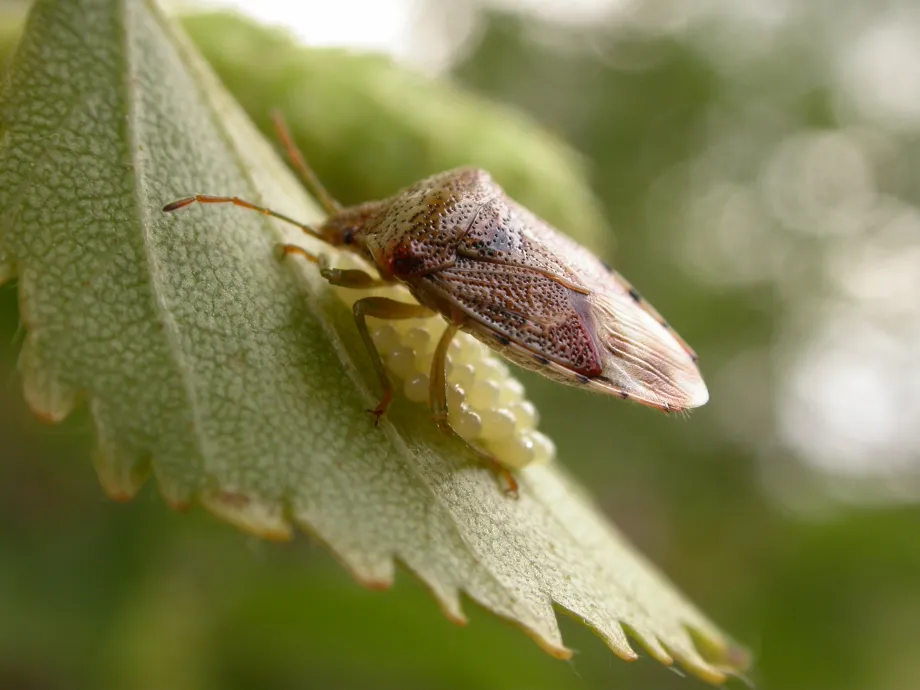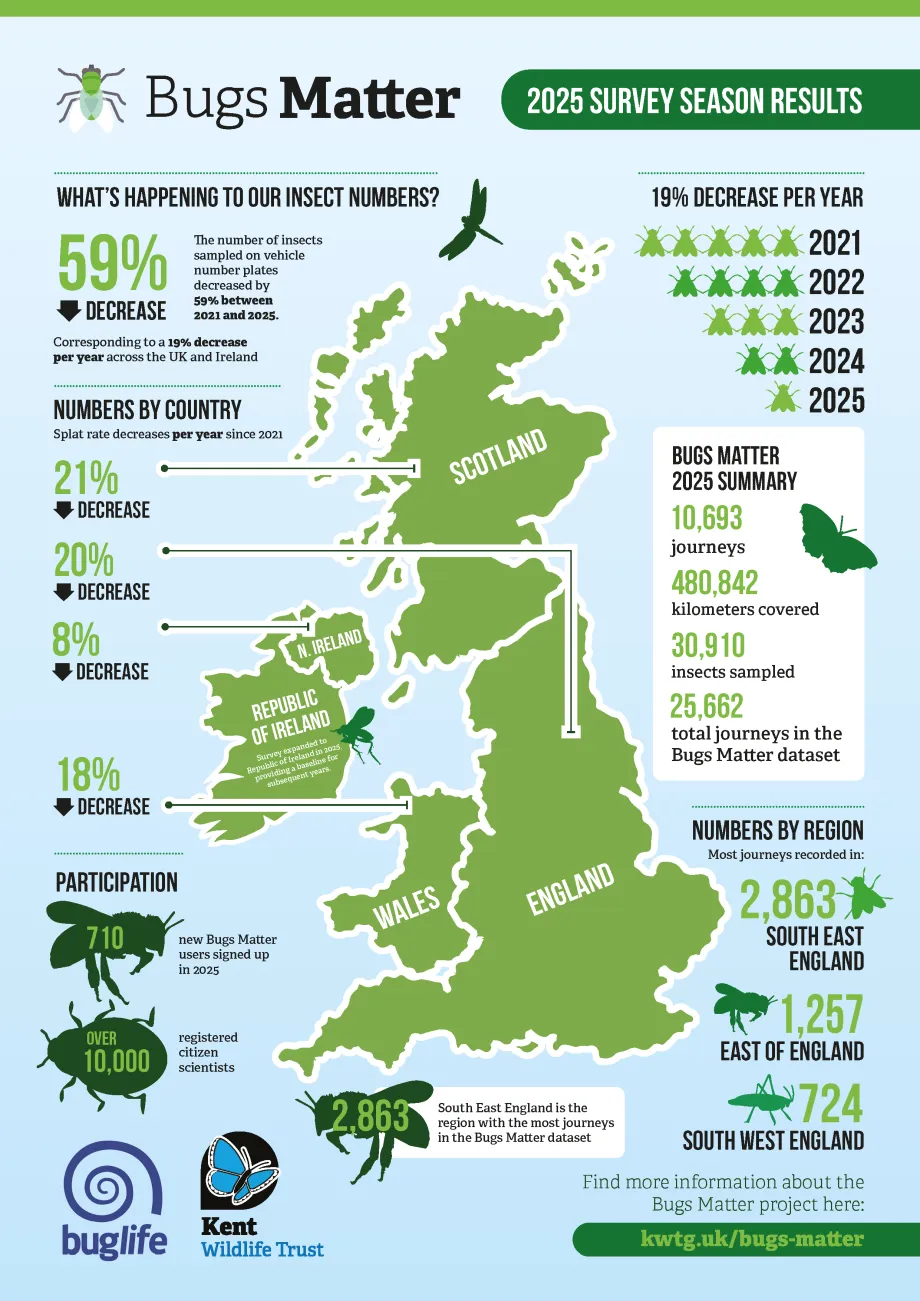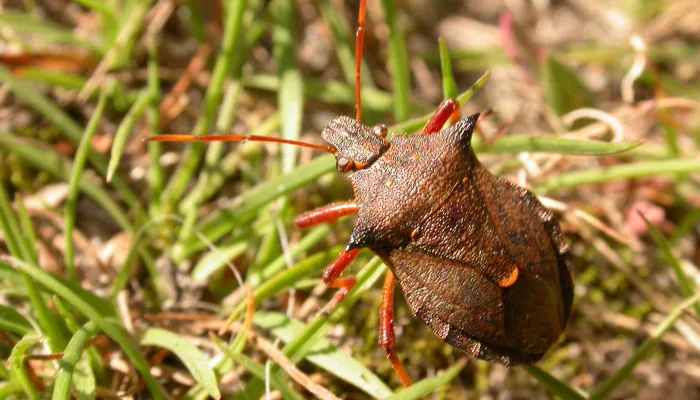The troubling extent of insect declines in Kent has been highlighted once again by the results of the 2025 Bugs Matter citizen science survey published today.
Bugs Matter, the annual survey from Buglife and Kent Wildlife Trust, has captured the imagination of citizen scientists across Kent and beyond. Using the simple but ingenious method of monitoring insect splats on vehicle number plates, the project provides crucial data about insect abundance. Analysis of records from nearly 2,000 journeys over 64,545 kilometers in Kent shows an alarming annual average decline of 23% since the survey began in 2021.
As COP30, the 30th UN climate conference, draws to a close in Brazil this week, world leaders have been discussing priority actions to tackle climate change, one of the key drivers of insect decline. Insects are critical to ecosystem functioning and services. They pollinate crops, provide natural pest control, decompose waste and recycle nutrients, and underpin food chains that support birds, mammals and other wildlife. Without insects, the planet’s ecological systems would collapse. The new data from the Bugs Matter survey show a 59% decline in splat rates across the UK between 2021 and 2025, corresponding to an annual decline of 19%.
Andrew Whitehouse of Buglife said: "You might expect that the sunny Spring and hot Summer in 2025 would give insect numbers a boost, however the Bugs Matter data suggest otherwise. Despite apparently favourable conditions for insects to thrive we have recorded a fifth year of significant decline UK-wide. Insects might be small, but they are incredibly important to maintaining healthy environments, and delivering the services that we and other animals rely upon – from healthy soils and clean rivers to pollinating crops. Urgent action is needed to restore nature at scale and reduce threats like pesticide use, habitat loss, and climate change."
Rosie Bleet of Kent Wildlife Trust added: “These results are extremely concerning, particularly if insect splats serve as an accurate measure of insect populations. This is a red flag for the state of nature in the UK that shouldn’t be ignored. A yearly decrease of 19% is really alarming. It is vital that we continue to run Bugs Matter next year and beyond. We’re so grateful to all of the citizen scientists who were involved in the survey this year, collecting more data than any other year. We need even more of you to get stuck in next year and help track the numbers of these important creatures.”
Citizen scientists logged more than 10,000 journeys in the Bugs Matter app in 2025, covering nearly 481,000km; with more than 700 new users signing up to the app. We also saw citizen scientists recording journeys in the Shetland Islands for the first time; meaning Bugs Matter participants surveyed as far southwest as Land’s End up to John O’Groats and beyond! We thank everyone who has taken part this year and helped to collect this vitally important data and encourage even more people to take part in 2026.

Parent Bug brooding eggs ©Philip Precey


